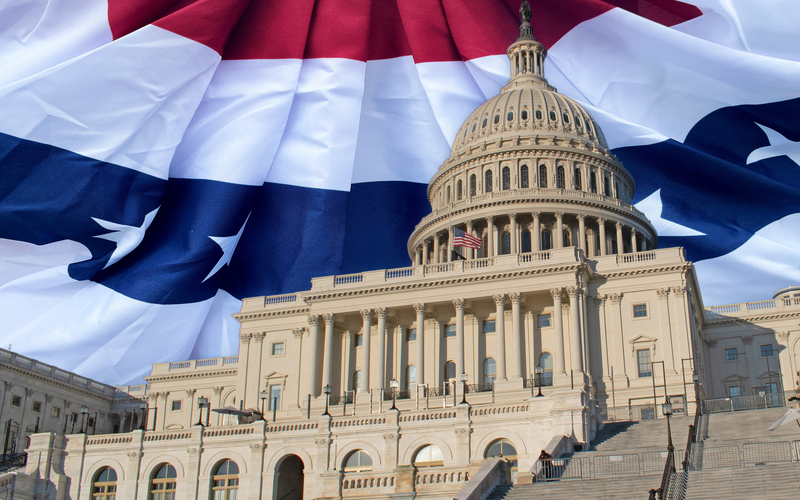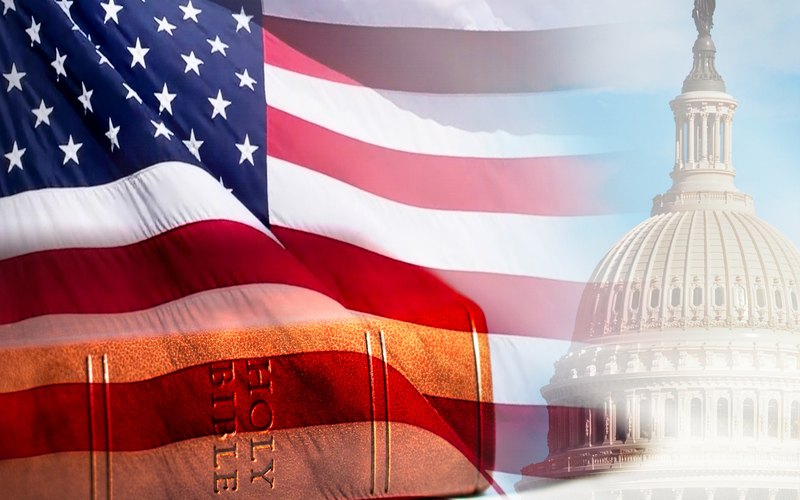The Little Christmas Prayer Made Famous by a King
Sign up for a six month free
trial of The Stand Magazine!
On Christmas Day, 1939, Britain’s King George VI, the father of Elizabeth II, decided to do something he detested. He would speak publicly on the radio.
King George had a speech defect known as a stammer, but determined he would revive a custom his late father had started and deliver an annual message to the British people. This being the first Christmas of the war with Germany, he rightly thought they could use the encouragement.
While the king and his staff were working on his broadcast message, someone sent a clipping from the Times of London to Buckingham Palace. The little article contained a prayer of sorts that had been found on a postcard in the desk of a deceased Bristol doctor. That man’s daughter had used it on greeting cards, one of which was received by a Mrs. J. C. M. Allen of Clifton, who had kept it. Realizing the words were appropriate for her country at the outbreak of the war, she passed the postcard on to the newspaper.
Just after 3 pm on Christmas Day, King George began with these words to his people–
"A new year is at hand. We cannot tell what it will bring. If it brings peace, how thankful we shall all be. If it brings us continued struggle we shall remain undaunted. In the meantime I feel that we may all find a message of encouragement in the lines which, in my closing words, I would like to say to you."
Then, he delivered the lines which had come their circuitous route, from the doctor’s office to his daughter, to Mrs. Allen who sent it to the Times, and thence to the palace. Now, those words were shared with the world, spoken by no less than the King of England.
"I said to the man who stood at the Gate of the Year, ‘Give me a light that I may tread safely into the unknown.’ And he replied, ‘Go out into the darkness, and put your hand into the Hand of God. That shall be to you better than light, and safer than a known way.’"
In his book 1940, Laurence Thompson tells what happened next.
Newspaper editors began a frantic search for the author of that piece. Cables flashed across the Atlantic in the hope that the Americans might know. Some suggested G. K. Chesterton, John Bunyan, or Thomas a Kempis. Then, the BBC announced the name of the author: 64-year-old Miss Minnie Louise Haskins.
Thompson writes, “Miss Haskins, a retired lecturer of the London School of Economics, then living at Crowborough, in Sussex, had not heard the King’s broadcast, but had been listening during the evening to a BBC summary of the speech, when the words spoken struck her as ‘oddly familiar.’ Not until the quotation was finished did she remember that, many years before, she had written something like this in a slim volume of verse called ‘The Desert,’ which had been privately printed in 1908 and sold in aid of Zenana missionary work in India.”
Within days, Minnie Louise Haskins was famous. Her little volume of poetry was republished and went through eight more printings. By 1943, some 43,000 copies had been sold. Thompson writes, “It achieved for her what a lifetime’s work in factory welfare and social science had been unable to do: an entry in ‘Who’s Who’ and an obituary in the Times when she died in 1957.”
I found this while reading the Laurence Thompson book and thought you would appreciate it. It reminds me to remind you–
–If you like to write, write! You never know what God will do with your words. They will travel to countries you will never see, even into the future. (Here we are 85 years after the king delivered that radio speech and we are quoting Ms. Haskins’ words. This is beyond wonderful.)
–If you find something precious in some old book, use it! You never know!
Now, do one thing please: Go back and read the little prayer. Use it as you are able. Thank you.
(Editor's Note: This blog was posted first on Dr. McKeever's blog site HERE.)

Sign up for a free six-month trial of
The Stand Magazine!
Sign up for free to receive notable blogs delivered to your email weekly.



















